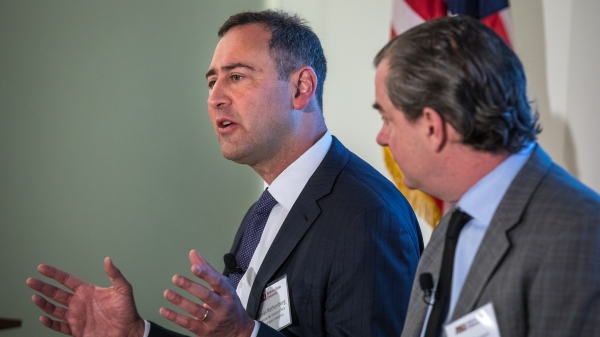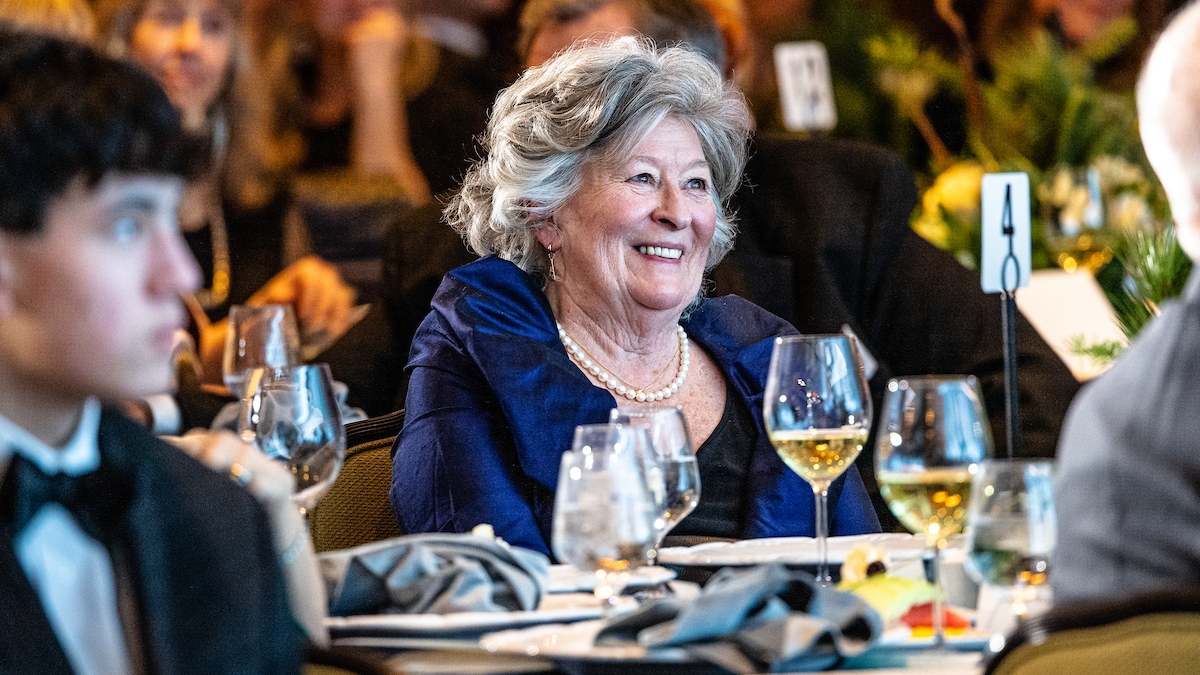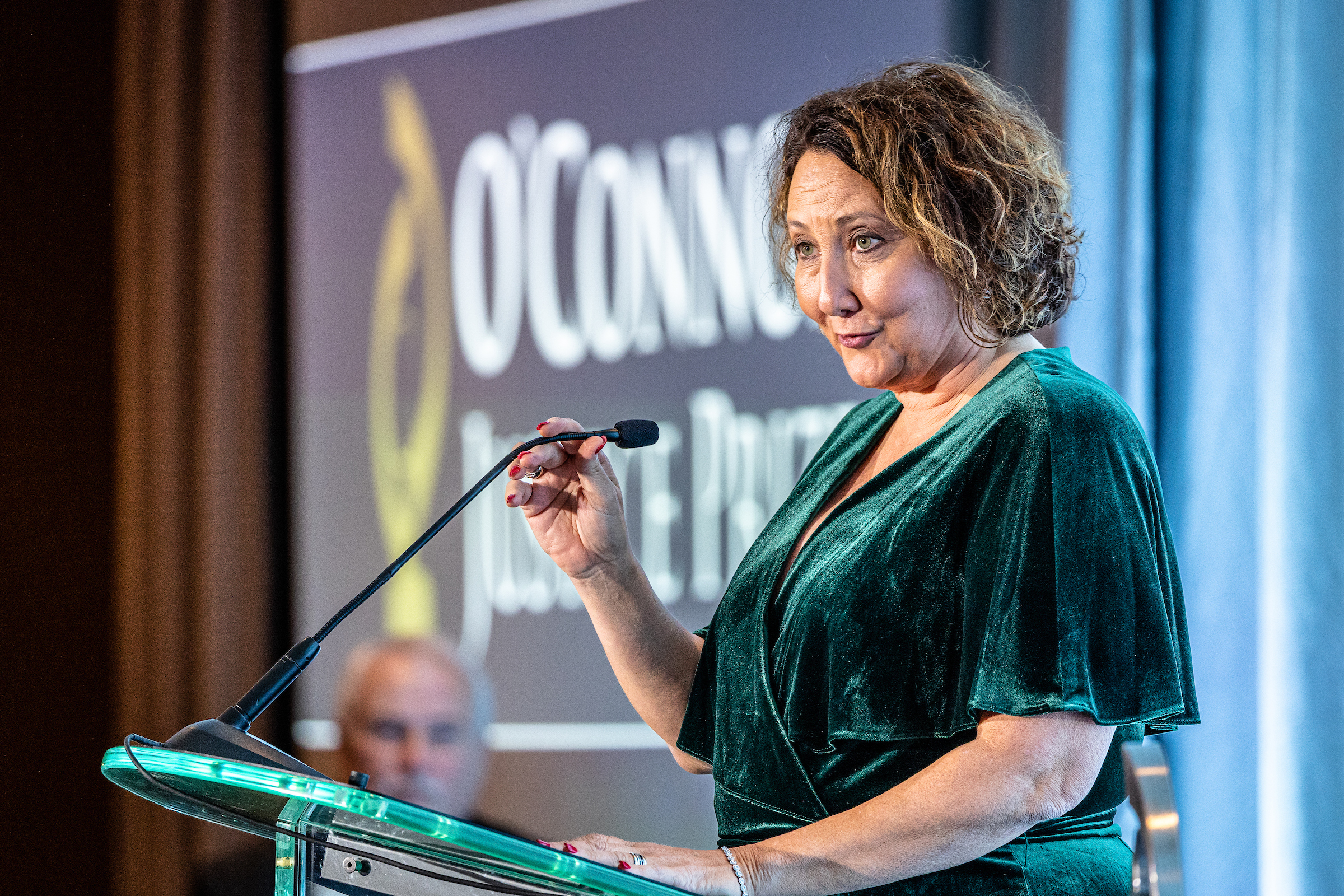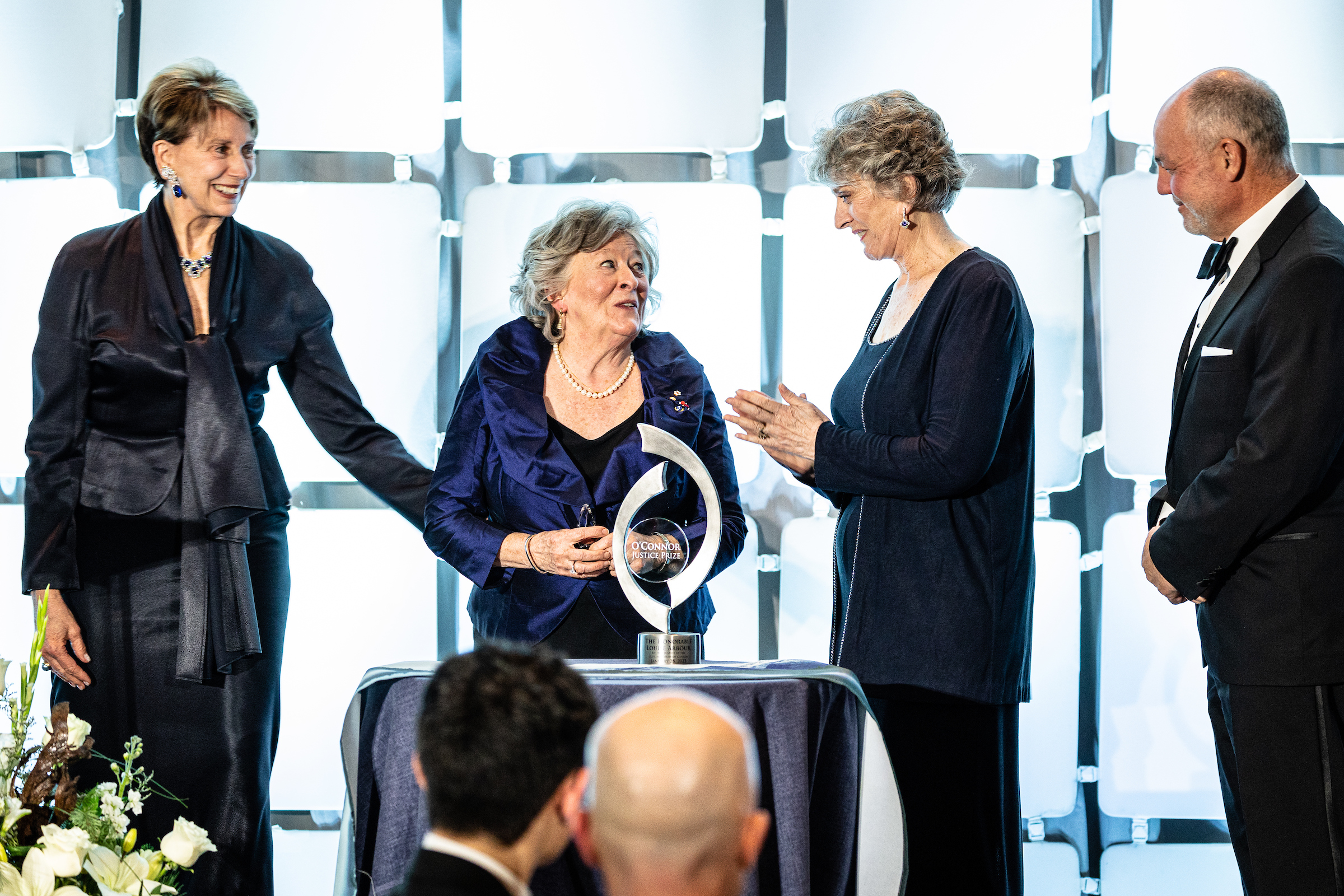Former Supreme Court of Canada Justice Louise Arbour had the honor of receiving the 2023 O'Connor Justice Prize on Jan. 28.
The award, administered by the Sandra Day O’Connor College of Law at Arizona State University, is inspired by the legacy of former Supreme Court Justice Sandra Day O’Connor. It is presented to those with a lifelong commitment to the rule of law, judicial independence and human rights.
Arbour, who is also the former U.N. high commissioner for human rights, is in good company — former U.S. President Jimmy Carter and former South African President Frederik Willem de Klerk, both Nobel Peace Prize recipients, are among the previous winners.
Arbour's legal accomplishments are rare and far-reaching. She has fought for human rights with courage and a certain “chutzpah” that marked her style and contributed to her success.
In Canada, Arbour battled sexual misconduct in the Canadian Armed Forces as well as the country’s prison systems.
As chief prosecutor for the U.N.’s International Criminal Tribunals (from 1996–99), Arbour secured the first conviction for genocide (in nearly 50 years) during the Rwanda Civil War and brought the first indictment for war crimes against a sitting head of state, Serbia President Slobodan Milosevic.
“When I reflect on your career, I can't help but see similarities with former Supreme Court Justice O'Connor,” said Barbara Barrett, attorney and diplomat who served as the United States secretary of the Air Force. “You've championed the rule of law and human rights at every level from the community to the nation to globally. And you've done it with grace, fervor and indeed, style.”
Sandra Day O'Connor was the first woman to lead a state senate, the first woman to serve on the United States Supreme Court and the first woman to have her name attached to a law school. As Supreme Court Justice, she wrote 645 opinions during her tenure, including 114 cases in which she was the deciding vote.
“I admired her judicial prism,” added Barrett, an ASU alumni who engaged the audience with stories of O’Connor. “She raised three boys, so she saw right through excuses.”
The evening kicked off with the former Arizona Supreme Court Justice Ruth V. McGregor, who welcomed nearly 125 guests to the Omni Scottsdale Resort & Spa at Montelucia and recognized members of the O’Connor family, as well as judges, state officials and Mexican dignitaries.
Sandra Day O'Connor College of Law Dean Designate and Regents Professor Stacy Leeds delivers remarks during the 2023 O’Connor Justice Prize event on Saturday, Jan. 28, at the Omni Scottsdale Resort and Spa at Montelucia. Photo by Charlie Leight/ASU News
ASU Law Dean Emeritus Doug Sylvester, who established the O’Connor Justice Prize in 2014, also attended the event.
The evening was marked by voices from the legal community, including Stacy Leeds, ASU Law's newly appointed dean. Russell Brown, the puisne justice for the Supreme Court of Canada, highlighted the qualities that contributed to Arbour’s success.
Brown said Arbour's understanding of criminal law at a domestic and international level made her an important presence.
“Arbour had a clarity of analysis that could only be the product of having dug deep and deliberated thoroughly through the issues,” he said.
“She had the admirable and elusive judicial quality of untangling complex issues, cutting through legal bloviation and asking lawyers incisive questions that directed them and her colleagues away from the rhetorical distractions and shiny objects to the heart of the problem for the law, and just as importantly, if not more so to her for the people it serves,” Brown added.
Like O’Connor, who fought for women’s rights — in the 1970s, she worked to gender neutralize the entire Arizona revised statutes — Arbour also had her eye on injustices toward Canadian women. She investigated an all-male emergency response team that was conducting strip searches of women prisoners at a federal prison.
Arbour talked about her path to success before delving into deeper questions of law as it relates to interrogation, migration and climate change.
Louise Arbour (second from left) is welcomed to the podium by (from left to right) Ambassador Barbara Barrett, retired Justice Ruth McGregor and Justice of the Supreme Court of Canada Russell Brown at the presentation of the 2023 O’Connor Justice Prize, Saturday, Jan. 28, at the Omni Scottsdale Resort and Spa at Montelucia. Photo by Charlie Leight/ASU News
Arbour framed her talk around an approach that O’Connor employed, using the words “attractive and unattractive” to diplomatically voice her opinions.
“The poverty of our moral and ethical thinking in the public discourse is very unattractive,” Arbour said.
She talked about diversity and inclusiveness as it relates to marginalized groups including women. She discussed stereotypes attributed to women, such as collegiality, empathy and nuance, in contrast to their male counterparts who are seen as more decisive, combative and opinionated.
“To what extent is professionalism and legal training, in our case, one of the great equalizers that overtake gender characteristics?” she asked.
Arbour concluded her talk by juxtaposing “unattractive matters” like the rise in disinformation and polarization with the launch of the James Webb Space Telescope, which demonstrates the incredible potential in each of us to reach for the stars.
"As scientists propel us into a better future, I would like to see a rise in the justice sector — that lawyers will continue to apply their remarkable skills in the best tradition of our profession," she said.
“People like Sandra D. O'Connor have paved their way. I'm delighted that you've given me an opportunity to echo her call.”
Top photo: Louise Arbour listens to a tribute to Justice Sandra Day O'Connor at the presentation of the 2023 O’Connor Justice Prize, which was awarded to Arbour on Jan. 28 at the Omni Scottsdale Resort and Spa at Montelucia. Photo by Charlie Leight/ASU News
More Law, journalism and politics

ASU center to host the Pursuits of Education and Excellence Symposium
The Center for the Study of Race and Democracy (CSRD) at Arizona State University is introducing the Pursuits of Education and Excellence Symposium as part of an ongoing initiative to commemorate the…
ASU journalism students dominate NATAS Student Production Award nominations
Students at Arizona State University’s Walter Cronkite School of Journalism and Mass Communication dominated the nominations field of the prestigious Rocky Mountain Southwest Chapter of the National…

Future Security Initiative director breaks down how the US hostage exchange happened
Daniel Rothenberg is a co-director of Arizona State University’s Future Security Initiative, a research arm of the School of Politics and Global Studies devoted to leading conversations on U.S.…


